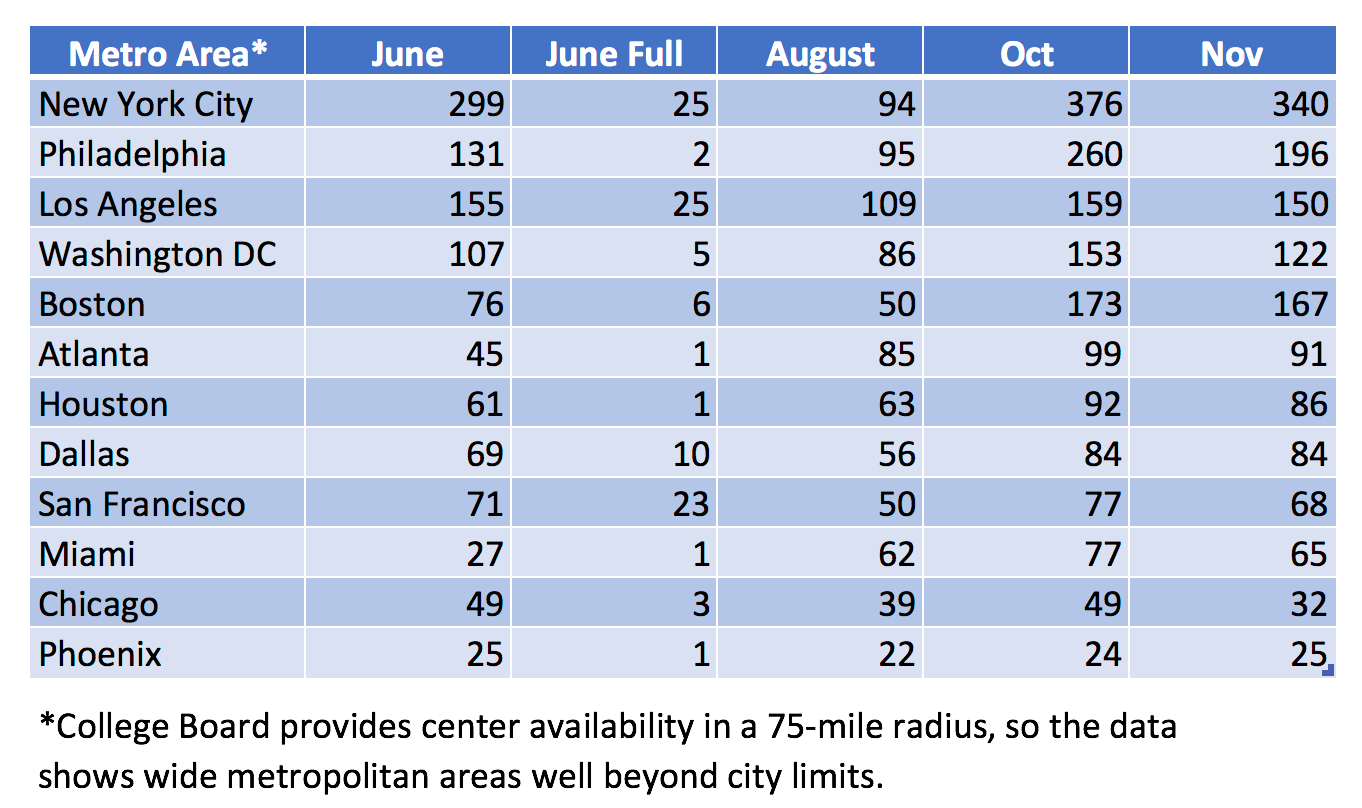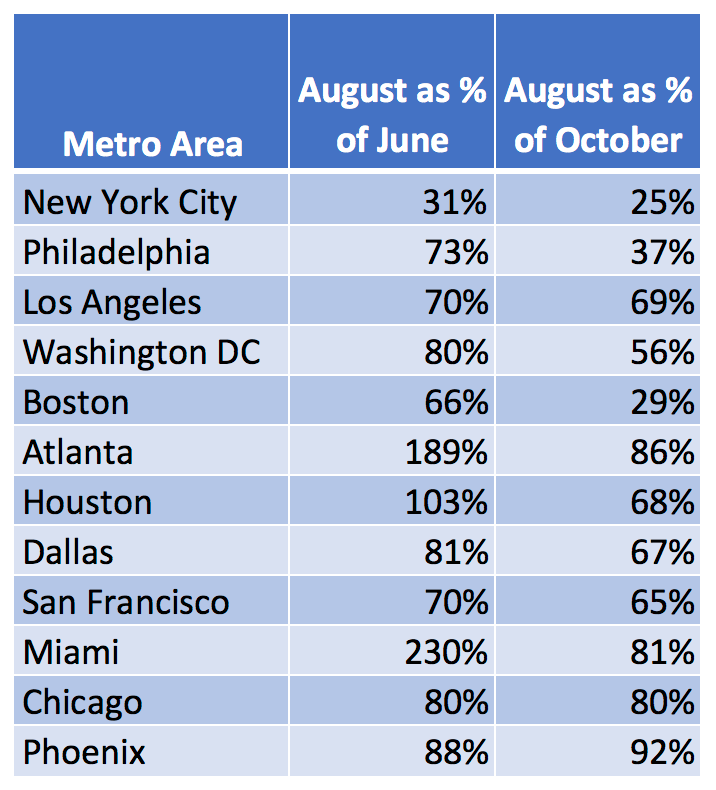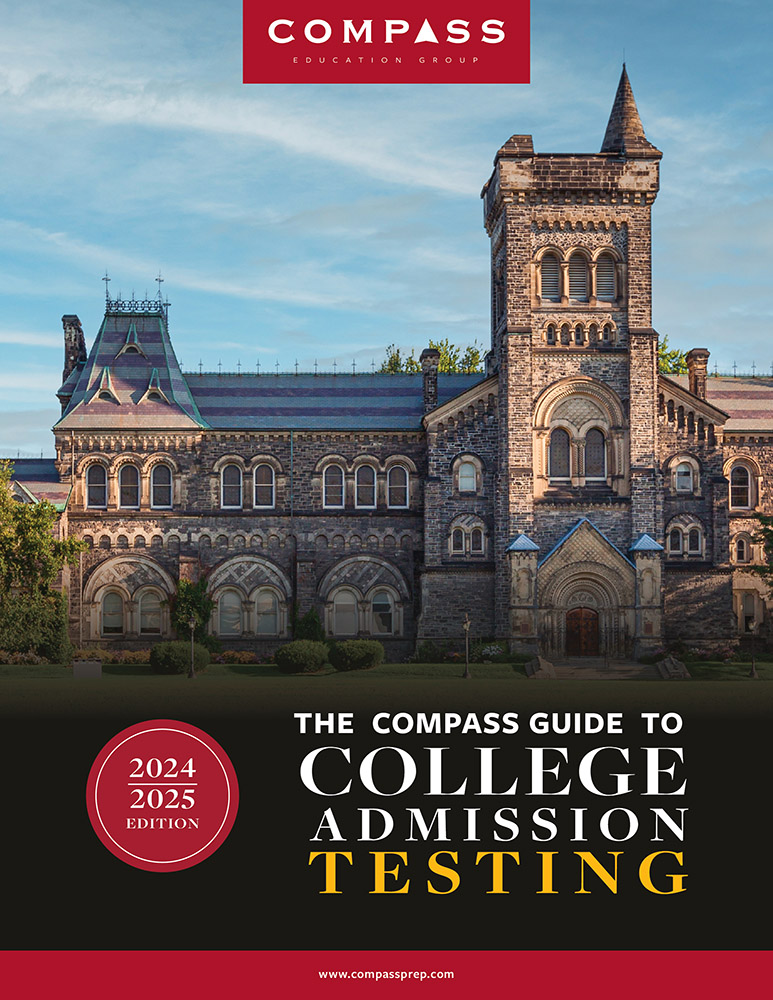
Demand and Supply
For well over a decade, College Board has considered making a summer SAT a reality. The rise in EA/ED applications has increased the demand among students for testing (usually re-testing) that can be completed in plenty of time for early deadlines. ACT’s increasing prominence and its senior-friendly September date have clearly rankled the College Board. The problem with summer testing has never been in the concept but in the execution. Test centers depend on the kindness of host high schools for space, testing supervisors, and a ready source of available proctors. The incentives clearly grew large enough for College Board to solve these issues (perhaps). By setting the test date as close to possible to Labor Day, College Board clearly assumed that a sufficient number of schools would be coming back online after summer break. It even felt confident enough to offer Subject Tests in August, as well. Rising seniors rejoiced.
Last week (the end of April 2017), College Board went live with 2017-2018 SAT registration, and we could finally see where the August SAT would be offered. The results are a mixed bag. We have compiled data for the most populous states and metropolitan areas. For the top 12 states, we’ve plotted every center available in August and, for comparison, May 2017, June 2017, and October 2017. Traditionally, October has the largest number of centers (testing volume grows throughout the calendar year and crests in Oct/Nov.).
Mapping Thousands of Centers
We’ve converted the center data into interactive maps. You can zoom into a county or zoom out to the country (keep in mind, we’ve only uploaded data for 12 states). Toggle among test dates to see how the map changes. If you are in the New York / New Jersey area, you may want to first clear your desk of any breakables.
The data is based on the list of centers and is not a live update of centers marked as full. Students can use the maps as a helpful way of visualizing centers in their area, but they should immediately go to collegeboard.org for the latest information. Only during the registration process are full centers identified.
The maps use the Tableau data service, which is sometimes finicky. You can try reloading the page. If the interactive maps are unavailable, you can open these images to compare NY/NJ center availability in October to availability in August.
If you can register here, you can register anywhere.
New York and New Jersey students will have the hardest time scheduling summer testing. New York loses 80% of the centers it had open in June. New Jersey loses more than 60%. In terms of NYC proper, Manhattan has only 3 centers, and 1 is listed as full a few days after the SAT registration site went live. That’s nothing compared to Brooklyn, however, which has a single center in August versus more than a dozen for most test dates. The cruelest cut is that the center is already full. Students throughout the greater New York City area will be unable to take the August test or face lengthy commutes. The story is similar in upstate New York, with large swaths of white for August. [To be fair, ACT will avoid the entire state of New York when it introduces its July test in 2018 and already makes the February administration unavailable to students in the Empire State. This policy ties to New York’s test-takers’ rights legislation.]
Michigan gets no respect from its new partner.
Michigan has long been an “ACT state,” but College Board recently wrested away control of state-funded testing. Every student in Michigan participates in a School Day SAT in the spring. Despite the SAT’s inroads into Michigan, the state still has the lowest number of centers among the top 12. And it loses 60% of that number on the August date. There will be only 21 centers in the entire state. Michigan students hoping to retake the SAT after the state-funded spring testing may find limited options if they sign up early, and no options if they sign up late. If the interactive maps are unavailable, you can open these images to compare MI center availability in October to availability in August.
Avoiding the summer safari.
California falls in the middle of this group of states. It has one-third fewer centers available in August as in June or October. The San Francisco/San Jose area and the greater Los Angeles area lose roughly the same percentage of centers. Los Angeles has twice as many centers on most dates, but the areas are close to proportional once population is factored in. What is interesting about the Bay Area, though, is the number of centers already at capacity for June. As of April 30, about one-third (23 of 71) centers had no seats available for SAT w/Essay testers. No major metropolitan area came close to that level of early sellouts. Students should be making test plans soon and registering for summer or fall dates. If the interactive maps are unavailable, you can open these images to compare CA center availability in October to availability in August.
Comparing cities, not just states.
By going through the registration process dozens of times, Compass was also able to look at the top dozen metropolitan areas. Some areas, such as Atlanta, will actually see more August centers than they saw in June. A key unknown is how popular August will prove. If it is closer to June than to October, then there will be fewer capacity constraints. Many of the areas will be impacted, however, if students flock to the new date. Because this is the first year for August and many students are not aware of the date, we think that it will be smaller than October. That same lack of awareness, we fear, is why many students will try to register at the last minute. The metropolitan areas below are ordered by the total number of test centers in the June – October period.


My colleague Bruce Reed discusses why August is an ideal date for rising Seniors to test without the added stress of homework assignments. It also aligns well with the completion of summer preparation — whether done independently or with a class or tutor. Having August and October testing dates available allows for more flexibility when thinking about repeating Subject Tests or the SAT. August provides plenty of time to receive, review, and report scores before EA/ED applications. Students’ good intentions can easily fall apart, though, if no seats are available by the time they register for the SAT. Commuting to a far off center means not just allowing for added drive time, it means unfamiliar parking or drop-off locations, queueing areas, and even bathroom locations. Decreased sleep and increased anxiety is a bad recipe for SAT success.
Critics of year-round testing may bemoan the August SAT, but College Board should be commended for making another option available to students. While it scrapped the January SAT in the process, the trade-off was worthwhile. College Board still has work to do for 2018 to improve upon its initial efforts. Regularly turning away students counting on the August SAT or Subject Tests will sour any goodwill generated by the new date.


Dear Art,
Q1: Will the results an SAT Regular or SAT Subject test taken on the October 7, reported by about mid-November, arrive to the colleges in time to be considered as part of the Early Admission/Early Decision process?
Q2: This is obviously a very general question, in absence of knowing the actual scores and the specific schools (please assume “reach” schools)… In case of “retake” with one test day option, what is more important: to demonstrate high scores at the SAT Regular Test or the Subject Test? (If we have to make close call choices, I will have my student’s scores for the two tests in early June and mid-July respectively) ?
Thanks for the above update and the advice!
AB,
I am not aware of any college that will not accept the October tests as part of an EA/ED application. In fact, many will accept November scores. The catch is that the colleges are not holding up their decision making process in order to wait for scores to arrive. Also, when applying to a single-choice early action school, it’s helpful to know one’s complete testing portfolio before deciding on the “one” college. For the vast majority of students, October scores will arrive in plenty of time. The new August test date expands a student’s options, especially since I consider November testing to be a risky route for early applicants.
Q2, as you guessed, is hard to answer. I would say that the expected (hoped for?) gain is a critical factor. Going from a 1520 to a 1550 is clearly not going to have the impact of raising Subject Test scores from 650s to 750s. And just because I think November is a risky move as a primary test date does not mean that it should be discarded. If, for example, your student can only re-test in October (let’s say there is a scheduling conflict in August), he or she has little to lose by signing up for November. If, for some reason, scores for November are delayed, your student would be no worse off than having skipped November entirely. Emotionally, though, it can be a rollercoaster. I’m glad that students will now have an Aug/Oct pairing available rather than the traditional Oct/Nov choice.
Mr. Sawyer,
I have a question about retaking the ACT and I could not find a more appropriate thread on this topic.
My daughter is a Senior and has taken the ACT a few times and has improved each time with the exception of her math scores. She is exceptional at math, having earned a 5 of the AP Calc test as a Junior. Unfortunately, she has had some mishaps that have affected her performance on the math section of the ACT when she has taken it. She accidentally got her answers out of sequence on one of the tests and had to scramble to erase and rebubble her answers, and her calculator died at the start of the most recent test.
She received her ACT test results today. She received a composite score of 34, but only a 29 on math. Her other scores were 35 on both English and Reading and 36 on Science.
She is planning on applying to elite schools such as Stanford, Yale, Brown, Cornell, and The University of Michigan to study engineering and we are concerned that the 29 on math may be an issue. She is willing to retake the ACT, but the next reporting date is mid November, and early application deadlines are typically at the beginning of November. Would the schools have her ACT scores in time for their decision, or will they start looking at the applications before they receive the November scores? If they will start looking at her application before the November scores arrive, should we submit her most recent ACT scores and hope that they look at the updated scores when they arrive?
As I don’t really understand the admissions evaluation process, do you think that her math score will be an issue? Do they just look at the composite score, or do they also look at the section scores based on her intended major? Do they look at the AP scores at the same time as the ACT scores, where it would be obvious that she excels at math?
If it matters in your evaluation, she scored a 1510 on the SAT with a 5/6/6 essay score, she is a National Merit Semifinalist, she has a perfect GPA (all “A”s) with 3 AP classes through her Junior year. She also is well-rounded individual with several extra-curricular activities and athletics.
Normally I would not be concerned about this, but my research seems to indicate that scores of 1510 on the SAT and 34 on the ACT, as impressive as they seem to me, are merely average at the elite schools that she is interested in attending. I don’t know how much her other qualifications, and the fact that she is a female interested in engineering will offset her “average” test scores.
Your guidance would be appreciated.
Phil,
If your daughter chooses to retake the ACT in October, her scores will probably arrive in time for consideration. The November 1 deadline is for the student’s application, but scores from earlier test dates are generally accepted as long as they come in before the application is evaluated. Unfortunately, it is not guaranteed. You are correct that your daughter has excellent scores. You are also correct that her scores are about in the middle of admitted students at the most competitive colleges. If your daughter thinks that she can lift her Math score, then she would certainly have a great score. The difference between a 34 and 35, though, is unlikely to make or break her application. Most colleges will look at all of the subject scores and the composite score. There is no easy rule of thumb about how the 29 will be viewed any more than there is about a A- in sophomore chemistry (I know that your daughter did not get a A- chem!). I’m sorry that I can’t be of more help, but admissions at the colleges you mention is not a by-the-numbers affair.
Art,
If a student took the SAT MATH 2 subject test and went from a 730 to an 800, should he submit both scores? Is this considered as part of score choice the same way at the regular SAT? Do you have specific recommendations for a school like U Penn?
Thank you,
NS,
There would be no advantage to sending both scores (although most colleges will automatically look at the higher one). It’s quit easy to use Score Choice to send only the 800. Note that most colleges that ask students not to use Score Choice allow Score Choice for Subject Tests (confusing, huh?). UPenn is fine with Score Choice.